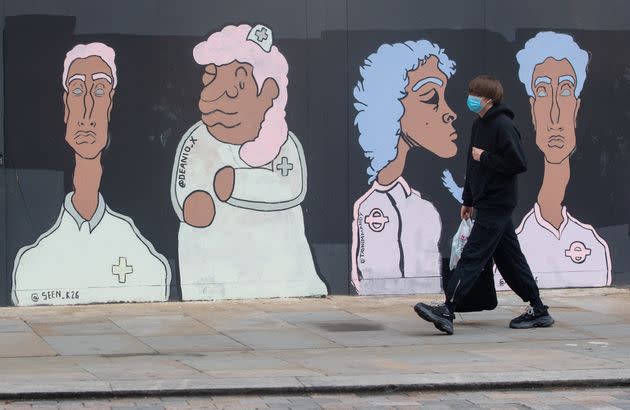'Act Now' – Government Urged To Do More To Protect BAME People As Covid Second Wave Hits

The government has been accused of failing to carry out key recommendations to protect Black, Asian and minority ethnic (BAME) communities from Covid-19 as fears mount over the second wave.
The first indication that people from these groups were disproportionately dying from coronavirus was published almost six months ago, yet critics say little has been done to reduce the risk despite two reports outlining actions that could be taken.
Ministers are being urged to act now to protect the vulnerable communities.
At the moment, a third of coronavirus patients in intensive care are from BAME backgrounds and on Monday, chief scientific officer Patrick Vallance warned there could be 50,000 daily cases of Covid-19 by mid-October and 200 deaths a day by mid-November if the current rate of infection is not halted.
Labour MP Marsha de Cordova MP, shadow women and equalities secretary, slammed the government for “failing” to safeguard BAME groups.
“This government has failed to act to protect Black, Asian and minority ethnic communities since this health crisis began six months ago. During that time we have seen copious amounts of evidence and recommendations, all of which point towards clear actions that the government must take,” she told HuffPost UK.
“The latest evidence suggests that Black, Asian and minority ethnic people are still disproportionately impacted by the virus but the government is still not doing enough and must instigate an action plan immediately.”
A report in April by the Intensive Care National Audit and Research Centre (ICNARC) revealed that a third of coronavirus patients were Black or Asian, despite those groups making up only 13% of the UK population.
Related...
Further analysis by Public Health England (PHE) in June confirmed that the ethnic minority population was more likely...


